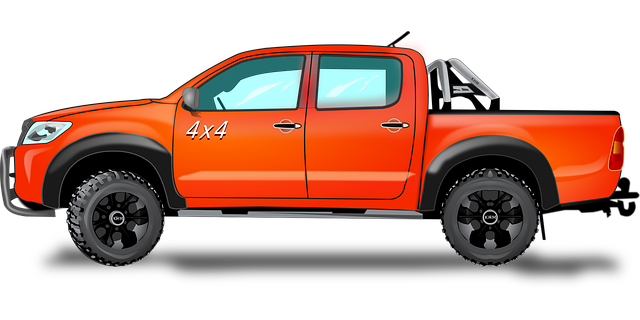ABS sensors are critical for Brownsville Truck recovery equipment, monitoring wheel speed and preventing lockup during hard braking. They send signals to adjust brake pressure individually to each wheel, enhancing safety and control in challenging road conditions. Future advancements using MEMS sensors and smart algorithms promise even greater precision and response times, especially during extreme weather and terrain in Brownsville, making them a game-changer for safer, more efficient recovery procedures.
ABS sensors, or Anti-lock Braking System sensors, are critical components in Brownsville Truck Recovery Equipment. They play a pivotal role in enhancing safety by preventing wheel lock during emergency braking. This article delves into the intricacies of ABS sensors, their functionality in truck recovery, and the numerous benefits they offer, including improved safety, enhanced efficiency, and cost savings. We’ll also explore different sensor types, common challenges, future trends, and innovations that continue to revolutionize truck recovery.
- What are ABS Sensors? (Definition and Basic Functionality)
- How do ABS Sensors Work in Brownsville Truck Recovery Equipment? (Step-by-step explanation)
- Benefits of Using ABS Sensors in Truck Recovery: (Focus on safety, efficiency, and cost savings)
- Types of ABS Sensors and Their Applications: (Discuss different sensor types used in trucks)
- Common Challenges and Troubleshooting Tips for ABS Sensors: (Address potential issues and solutions)
- Future Trends and Innovations in ABS Sensor Technology: (Explore advancements and their impact on truck recovery)
What are ABS Sensors? (Definition and Basic Functionality)

ABS sensors, short for Anti-lock Braking System sensors, are critical components in modern vehicle braking systems. These sensors monitor wheel speed and send signals to the vehicle’s computer to prevent wheels from locking up during hard braking or emergency situations. By detecting and responding to rapid changes in wheel speed, ABS sensors help drivers maintain control and reduce skidding, making them essential for enhancing road safety, especially in Brownsville truck recovery scenarios where quick and precise braking can be a matter of life and property.
In the context of Brownsville Truck recovery equipment, understanding how ABS sensors function is crucial. These sensors are typically located near each wheel and continuously monitor its rotation speed. If a sensor detects that a wheel is rotating slower than the others, indicating a potential lockup, it sends a signal to the ABS system. The system then modulates brake pressure individually to each wheel, allowing for controlled braking without skidding. This technology not only ensures safer stops but also enables drivers and recovery specialists in Brownsville to navigate challenging road conditions more effectively, making it an indispensable feature in any heavy-duty vehicle.
How do ABS Sensors Work in Brownsville Truck Recovery Equipment? (Step-by-step explanation)

Brownville Truck recovery equipment relies heavily on ABS (Anti-lock Braking System) sensors for safe and effective operations. The process begins when wheel speed sensors detect differences in rotation speeds between wheels. This information is sent to the vehicle’s control unit which then determines if a wheel is at risk of locking up due to braking. If a potential lockup is detected, the control unit commands the brakes to be applied and released rapidly in a pulsating pattern, preventing the wheel from locking completely.
In Brownsville Truck recovery equipment, these ABS sensors are strategically placed on each wheel or axle to ensure consistent monitoring. The control unit analyzes data from all sensors simultaneously, allowing for precise control and distribution of braking force. This ensures that trucks, especially during challenging recovery operations, maintain stability and avoid skidding or rolling while bringing them under control safely.
Benefits of Using ABS Sensors in Truck Recovery: (Focus on safety, efficiency, and cost savings)

ABS sensors in truck recovery bring about significant advantages that enhance safety, efficiency, and cost savings. By providing real-time data on wheel speed and brake performance, these sensors enable drivers to maintain better control during critical situations, reducing the risk of accidents. This enhanced safety is particularly crucial in Brownsville, where varying road conditions can pose challenges for truck operators.
Moreover, ABS sensors streamline recovery processes by allowing for precise braking control, which is essential when dealing with stuck or heavily loaded vehicles. This precision optimizes fuel efficiency and reduces wear on brakes, ultimately lowering maintenance costs for trucking operations. The integration of ABS sensors acts as a game-changer in Brownsville Truck recovery equipment, ensuring safer, more efficient, and cost-effective recovery procedures.
Types of ABS Sensors and Their Applications: (Discuss different sensor types used in trucks)

ABS sensors in trucks play a critical role in enhancing safety and performance. Among the various types used, the most common include wheel speed sensors and linear or hall effect sensors. Wheel speed sensors monitor the rotational speed of each wheel, providing vital data to the ABS system. If any wheel speeds differ significantly from the others, the sensor triggers the ABS to apply braking pressure individually to that wheel, preventing skidding or loss of control.
Linear and hall effect sensors, on the other hand, detect magnetic fields to measure vehicle dynamics like slip and lean. These sensors are instrumental in more advanced ABS systems found in modern trucks, enabling precise control and enhanced stability, especially during emergency maneuvers or rough road conditions. Brownsville Truck recovery equipment often relies on these sensor technologies for quick response times and effective performance, ensuring drivers maintain control even under extreme circumstances.
Common Challenges and Troubleshooting Tips for ABS Sensors: (Address potential issues and solutions)

ABS sensors play a critical role in ensuring safe braking and vehicle stability. However, these sensors can face several challenges such as contamination from dust or debris, corrosion due to moisture intrusion, or wear and tear over time. Troubleshooting tips include regular cleaning and inspection to prevent clogging or damage. Using high-quality replacement parts specifically designed for Brownsville Truck recovery equipment is essential. Monitoring sensor performance through diagnostic tools can help identify issues early on. Moreover, checking for proper calibration ensures accurate readings. If problems persist, consulting with a qualified mechanic or automotive specialist equipped with the latest diagnostics is advisable to avoid compromising safety and vehicle performance.
Future Trends and Innovations in ABS Sensor Technology: (Explore advancements and their impact on truck recovery)

The future of ABS (Anti-lock Braking System) sensor technology holds immense potential for enhancing truck recovery operations in Brownsville and beyond. Advancements such as MEMS (Micro-Electro-Mechanical Systems) sensors are expected to revolutionize the industry by offering greater precision and faster response times, enabling more effective wheel speed monitoring under extreme conditions. These innovations can significantly improve safety margins during critical braking events, leading to swifter and safer truck recovery in challenging terrains.
Additionally, the integration of smart algorithms and machine learning capabilities into ABS sensors promises to predict potential locking scenarios before they occur. By analyzing driving patterns and road conditions in real time, these systems can proactively adjust brake application, minimizing skidding and enhancing control. Such proactive measures can prove invaluable for truckers in Brownsville, where unpredictable weather and road conditions often pose significant safety challenges.
ABS sensors play a pivotal role in enhancing safety and efficiency in Brownsville Truck Recovery equipment. From preventing skidding to improving braking performance, these sensors contribute significantly to cost savings and enhanced truck recovery capabilities. As technology advances, future trends like smart sensor integration and real-time data analytics promise to revolutionize truck recovery processes, ensuring safer and more efficient operations on the road.



